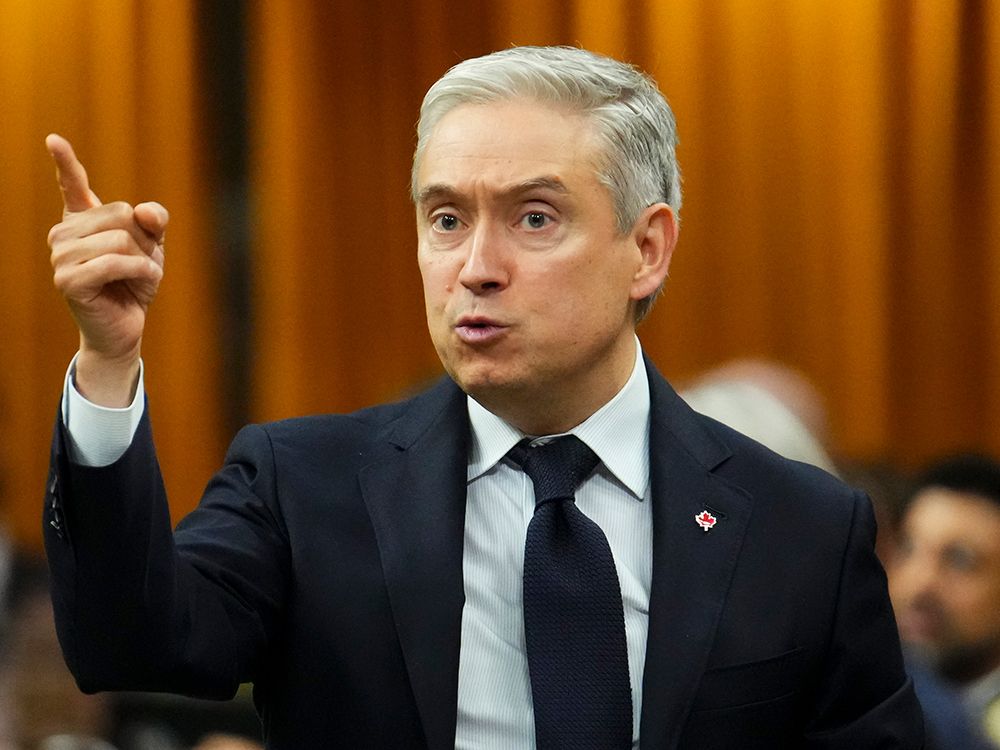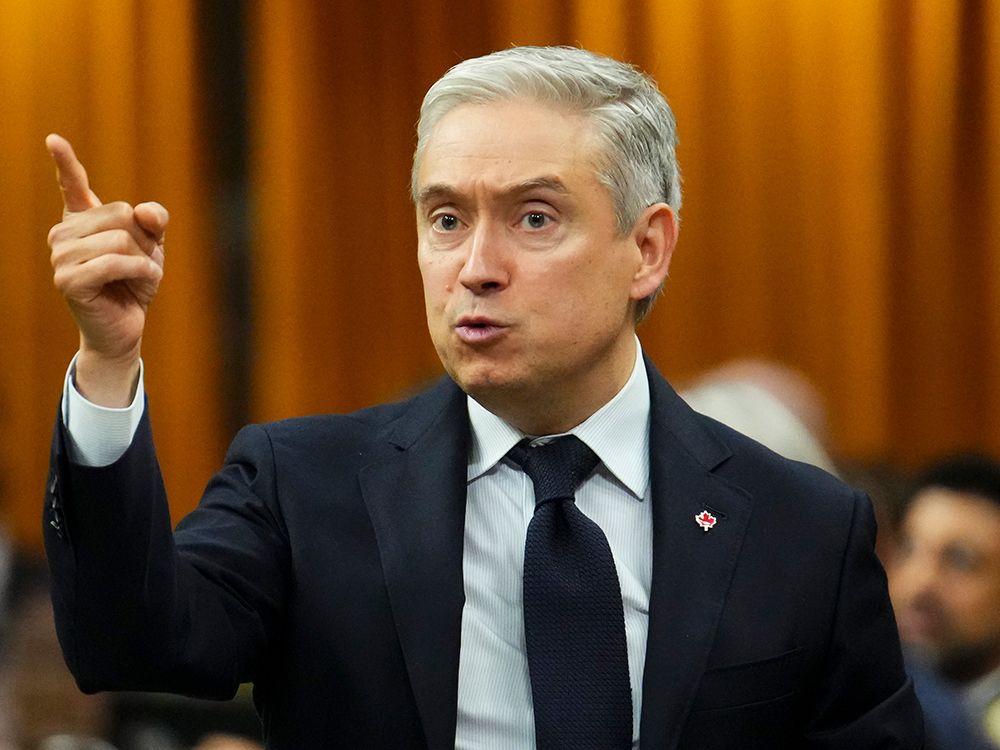
OTTAWA – After several big government “investments,” it’s time for cuts: Canada’s Finance Minister François-Philippe Champagne has directed his cabinet colleagues to find ways to cut spending by billions of dollars as he prepares to present his first budget in October.
In two letters sent Monday to all his cabinet colleagues — including secretaries of state who sit outside cabinet as junior ministers — Champagne stated his intention to reduce program spending by 7.5 per cent for the 2026–27 fiscal year, by 10 per cent in the second year, and 15 per cent in 2028–29.
National Post did not see the confidential letters, but several high-ranking sources confirmed their contents, as initially reported by La Presse.
“As part of this ambitious review, each minister must examine the programs and activities in their portfolio to determine which (of them): achieve their objectives, are essential to the federal mandate and complement rather than duplicate what is offered elsewhere by the federal government or by other levels of government,” the letter states, a senior government source said.
Champagne also asked ministers for “three priority proposals that can be funded by the reallocation of existing funds, following a spending review” by the end of the summer.
Liberal government insiders indicated that a first wave of budget cuts could be felt in the next budget, with “initial savings.”
“It is a long-term transformation of government,” said Champagne’s spokesperson, Audrey Milette. She also confirmed that department cuts will be “a curve over a certain period of time.” She added that
the government does not plan to cut transfers to the provinces, or social programs such as dental care, pharma care and child care.
In a written statement to this newspaper, Public Service Alliance of Canada president Sharon DeSousa said that the union supports Prime Minister Mark Carney’s efforts at building a strong economy, but doesn’t support cutting public services in the name of “efficiency.”
“Canada’s public service workers power this country, and we need a strong, stable public service to make that vision a reality,” she said.
“We expect to meet with Treasury Board and the Prime Minister’s Office as soon as possible for a full briefing on the expenditure review and its potential impact on workers and public services.”
A senior government source said the idea isn’t to “hurt” the public sector, but to implement long-term changes in how the government operates, including reorganizing staff. As an example, the source said staffers could hypothetically be reassigned from the Immigration Department to National Defence or Housing.
This initiative is being led by the Department of Finance and the Treasury Board at the request of Carney, who often repeated “invest more, spend less” throughout his recent federal election campaign.
His goal is to reduce the operating budget, while setting increased spending apart in the capital budget.
The Parliamentary Budget Officer projected early this year that the federal deficit would fall to $50.1 billion during this fiscal year, a slight improvement over the $61.9 billion shortfall recorded in 2023–24. However, Carney has made several big-ticket spending announcements since then, including
,
and
dramatically amping up defence spending
. The C.D. Howe Institute
projected last week that this year’s deficit could reach $92 billion
.
Champagne’s letters arrived just as the new clerk of the Privy Council, Michael Sabia, and Mr. Carney’s new chief of staff, Marc-André Blanchard, took up their posts on Monday.
The exercise is not new at the federal level. Two years ago, then Treasury Board president
Anita Anand asked her cabinet colleagues to find $15.4 billion
in government spending cuts by 2028, followed by $4.1 billion annually thereafter. At the time, the government wanted to redirect underutilized funds to essential services, including health care.
Recently,
the Montreal Economic Institute argued
that Carney should “take a page from the (former prime minister Jean) Chrétien government’s 1994 program review” and cut tens of thousands of public service jobs.
The think tank found that such a program review would result in the elimination of approximately 64,000 federal public service jobs.
National Post
atrepanier@postmedia.com
Our website is the place for the latest breaking news, exclusive scoops, longreads and provocative commentary. Please bookmark nationalpost.com and sign up for our newsletters here.
